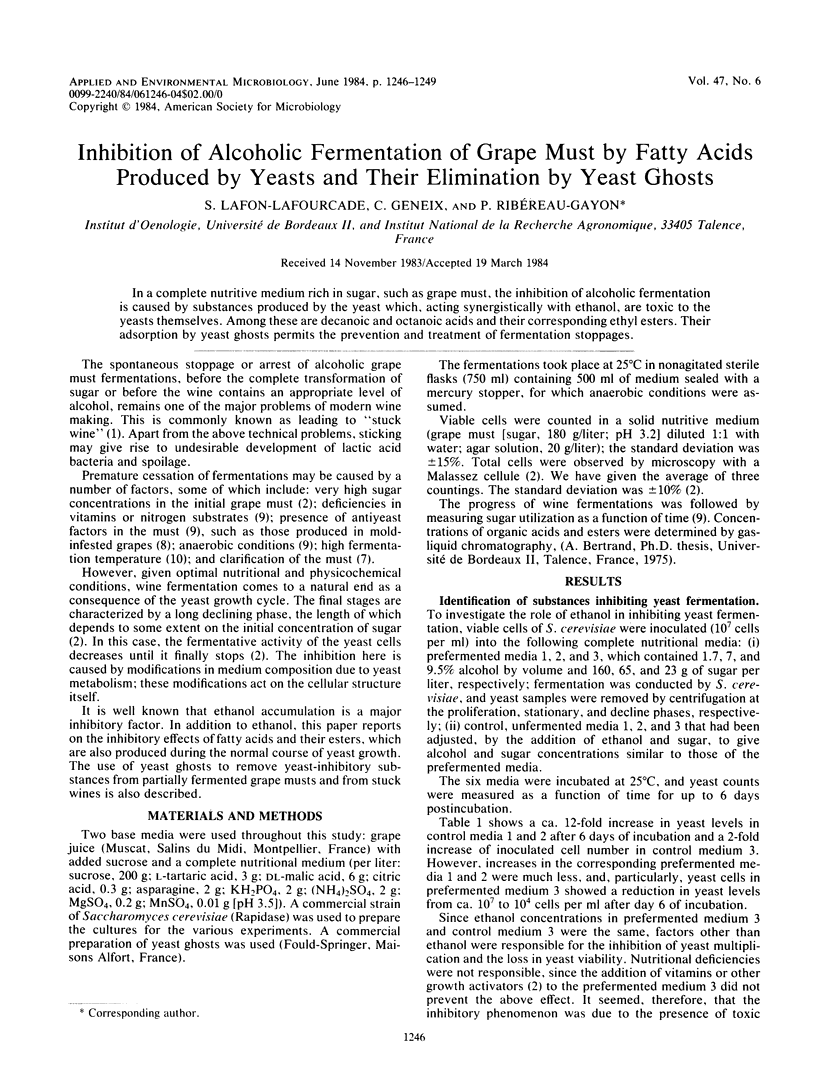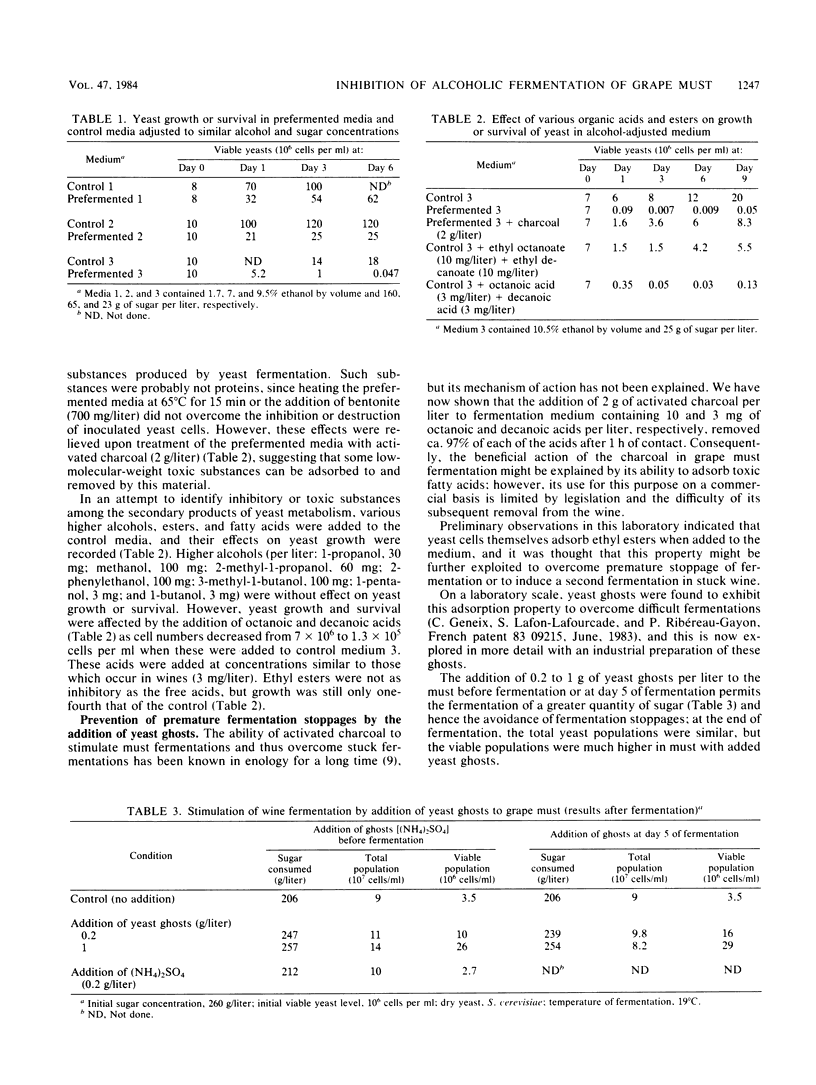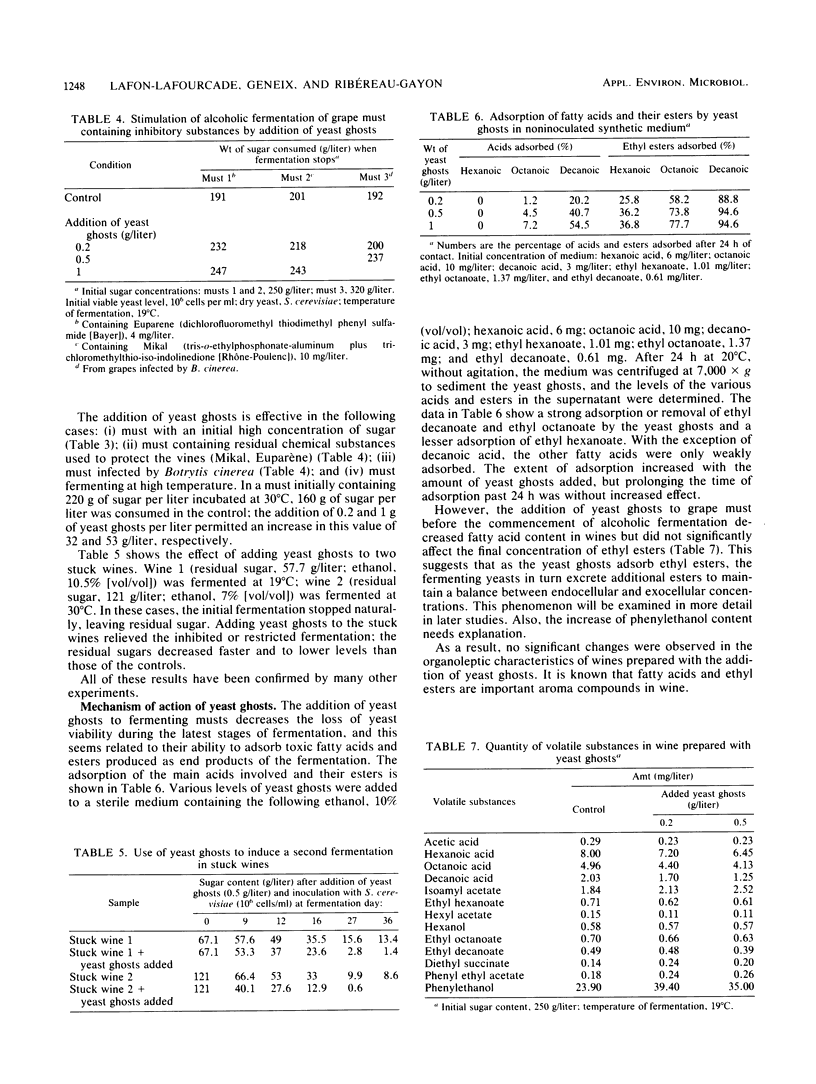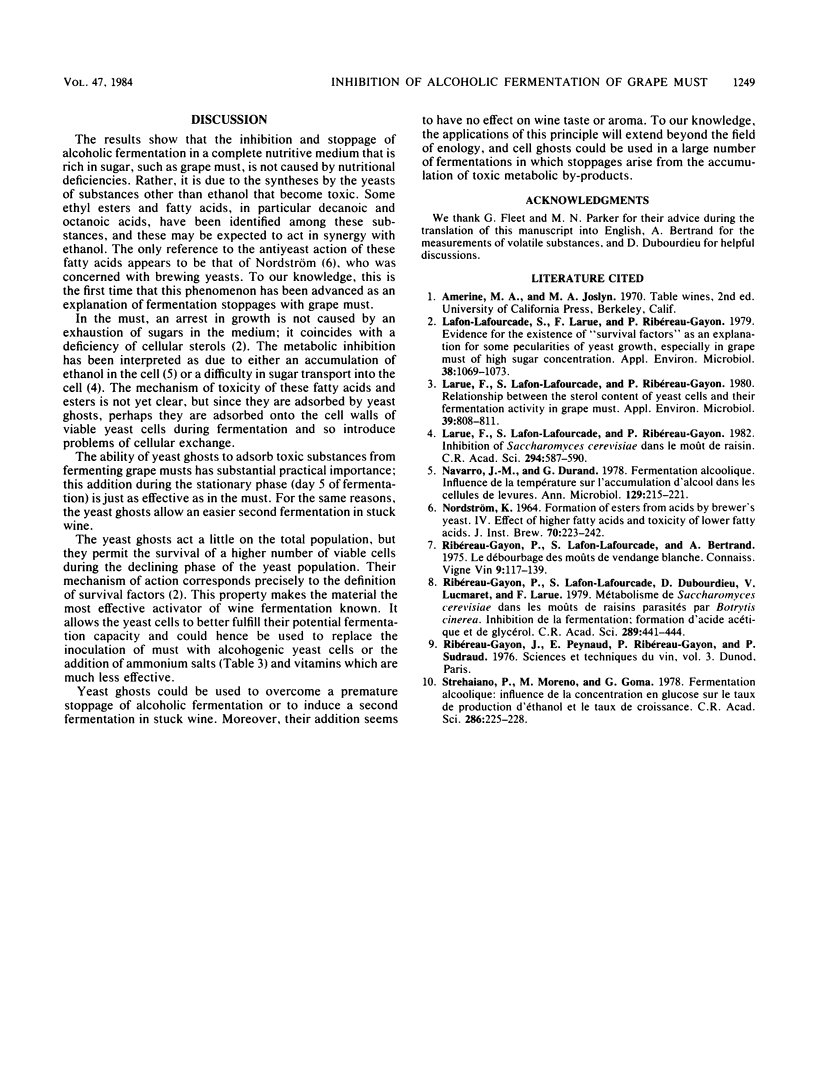Abstract
In a complete nutritive medium rich in sugar, such as grape must, the inhibition of alcoholic fermentation is caused by substances produced by the yeast which, acting synergistically with ethanol, are toxic to the yeasts themselves. Among these are decanoic and octanoic acids and their corresponding ethyl esters. Their adsorption by yeast ghosts permits the prevention and treatment of fermentation stoppages.
Full text
PDF



Selected References
These references are in PubMed. This may not be the complete list of references from this article.
- Lafon-Lafourcade S., Larue F., Ribereau-Gayon P. Evidence for the existence of "survival factors" as an explanation for some peculiarities of yeast growth, especially in grape must of high sugar concentration. Appl Environ Microbiol. 1979 Dec;38(6):1069–1073. doi: 10.1128/aem.38.6.1069-1073.1979. [DOI] [PMC free article] [PubMed] [Google Scholar]
- Larue F., Lafon-Lafourcade S., Ribereau-Gayon P. Relationship between the sterol content of yeast cells and their fermentation activity in grape must. Appl Environ Microbiol. 1980 Apr;39(4):808–811. doi: 10.1128/aem.39.4.808-811.1980. [DOI] [PMC free article] [PubMed] [Google Scholar]
- Navarro J. M., Durand G. Fermentation alcoolique: influence de la température sur l'accumulation d'alcool dans les cellules de levure. Ann Microbiol (Paris) 1978 Aug-Sep;129B(2):215–224. [PubMed] [Google Scholar]


